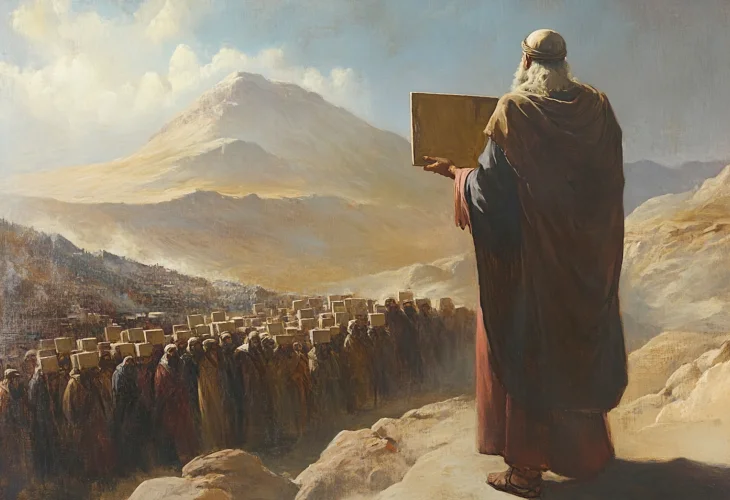History and Archaeology
Why Jews Believe in the Revelation at Sinai: The Logic Behind 3,300 Years of Unbroken Testimony
The Sinai revelation isn’t just a matter of faith — it’s a unique case of collective national memory, passed down by millions of witnesses through an unbroken historical chain from generation to generation

Some people mistakenly believe that religious Jews accept the revelation at Mount Sinai merely because it is written in the Torah. After all, anyone can write whatever they wish in a book — but that alone does not make a nation accept it as their national history, celebrate holidays in its memory, or build an entire civilization upon it.
For example, if tomorrow a public figure were to publish a book claiming that he served as Prime Minister of Israel for several consecutive terms and defeated both Hezbollah and Iran during his tenure, such a claim would be met with ridicule. No one would take it seriously, nor would millions pass it down as part of Israel’s collective history.
History Is Proven by a Nation, Not a Book
The key point to understand is this: no book proves its own history. What proves historical truth is the people who transmit that book — generation after generation, while preserving the collective memory of the events it describes.
When millions of people share a testimony that has been handed down by millions of their ancestors, generation after generation, tracing back to the first generation who personally witnessed the events, that chain of public testimony is the ultimate proof of the history recorded in the book.
The Jewish people have transmitted the Torah for over 3,300 years, along with the living traditions, festivals, and commandments that commemorate its events. Every year, Jews around the world celebrate Passover, recalling the Exodus from Egypt, and Sukkot, recalling God’s protection of our ancestors in the wilderness of Sinai.
The Torah documents these events as witnessed by millions of Israelites, and each generation reaffirms this testimony to its children in a continuous chain of transmission.
Collective National Memory: A Universal Model
This is how collective national history is preserved. The French, for example, know that there was an emperor named Napoleon because this fact was passed down through millions of eyewitnesses who lived in his time, through their children and grandchildren, down to today. The French teach their children from history books not because of the books themselves, but because those books reflect verified testimony accepted by earlier generations.
Because history is confirmed by a nation’s own memory, no large-scale historical event can be fabricated.
If, for instance, a modern French author were to publish a book claiming that Napoleon migrated from Africa as a child and conquered Europe with an army of Zulu warriors, the French people would immediately reject it. The story would be dismissed as absurd, ridiculed, and forgotten, because it contradicts the collective national memory.
The Torah as a Living Record
A book, therefore, is not a source of history by itself, but a recording tool, much like a camera. Its purpose is to preserve and clarify events witnessed by a people, but its credibility depends entirely on the continuity of that people’s tradition.
The Torah itself states this principle explicitly: “Remember the days of old, consider the years of many generations; ask your father, and he will tell you; your elders, and they will explain to you.”
(Devarim 32:7)
This is how the Jewish people remember the Revelation at Mount Sinai — not through blind faith in a text, but through an unbroken, multi-generational testimony that began with those who stood there themselves and has never ceased to this day.

